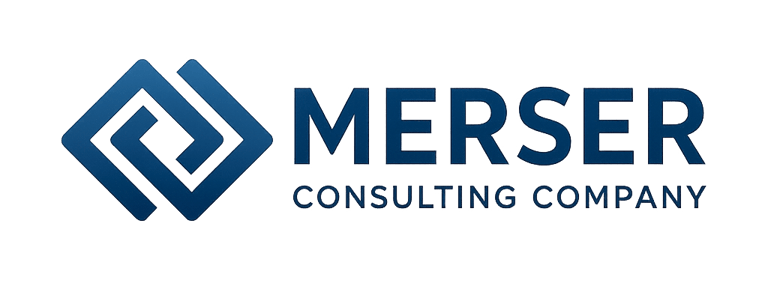Part 3: BUSINESS PLANNING
QUESTIONS & ANSWERS FOR MERSERPL CLIENTS
7/24/20253 min read


1. Why do I need a business plan if I already have an idea?
An idea is just a starting point. A business plan turns it into a clear structure—with calculations, risks, launch phases, and a profit model. It helps you identify weaknesses before investing and make informed decisions. We help turn your idea into a working strategy—with numbers, logic, and clarity.
2. Can I get funding, a grant, or a visa without a business plan?
Technically yes—but in practice, almost never. Banks, investors, and consulates require justification: numbers, forecasts, and structure. A business plan proves you know what you're doing. We create plans that actually work—and dramatically increase your approval chances.
3. How is a business plan for personal use different from one for a bank or investor?
A personal plan helps you organize actions, resources, and stages. A bank / investor plan is persuasive—it proves the business is profitable, in-demand, and low-risk. We tailor each plan to its purpose so you don’t just “write one,” but actually get results.
4. Do I need a business plan if my business is already running?
Yes. For an operating business, a business plan is a tool for growth—scaling, optimizing, or entering new markets. It helps rethink your strategy, assess performance, and prepare for investment. We make business plans not as formalities, but as working growth roadmaps.
5. How does a business plan help avoid mistakes and losses?
It reveals weak points before they become problems—financial missteps, logistic gaps, staffing issues, or marketing flaws. It shows what will work—and what won’t—before you spend money. We break your business into layers, assess risks, and suggest where to save time and resources.
6. What does a professional business plan include?
It includes: project overview, market and competitor analysis, target audience, sales strategy, marketing plan, financials, income/expense forecast, risks, legal structure, and staffing.
We build business plans that serve both as management tools and official documents for third parties.
7. Which sections are essential?
At a minimum: business concept, goals, product/service, market entry strategy, financial model, company structure, and action plan. For banks and visas: also include profitability analysis, break-even point, and projected results. We tailor the structure to your purpose—internal use, loan, investor, or immigration.
8. Is a financial model and forecast necessary?
Absolutely. Without it, the plan is just theory. A financial model shows:
· How much startup capital is needed
· When the project will break even
· How it will scale
Revenue, expense, profit, and investment projections are what banks, investors, and even you—as the entrepreneur—need to make decisions. We build clear, logical models—even if you’re not a finance expert.
9. How do you analyze competitors and the market?
It’s more than just listing similar companies. You need to understand:
· Which niches are taken
· How competitors behave
· Where market gaps are
· What makes you stand out
We use practical tools: segmentation, comparison tables, SWOT analysis, pricing matrices. The result: a clear market entry and positioning strategy.
10. What is a break-even point and how do you calculate it?
It’s when your revenue covers all costs—so real profit begins. Knowing your break-even helps you plan, not just hope. We calculate it based on fixed and variable costs, sales volume, and pricing strategy. It’s the foundation of a sound business strategy.
11. How do you assess risks and reduce them?
A business plan isn’t for wishful thinking. We break down risks into:
· Market · Financial · Legal · HR, etc.
We describe consequences, likelihood, and practical ways to minimize harm (e.g., backup channels, reserves, contracts, cost structure). This approach helps businesses survive crises and stay resilient.
12. Which KPIs should be included in the plan?
KPIs are measurable performance indicators like:
· Revenue
· Average check
· Profit margin
· CAC (Customer Acquisition Cost)
· LTV (Customer Lifetime Value)
· Payback period
They help you manage by numbers, not by guesswork. We select KPIs that suit your model—whether service, manufacturing, or retail—so you’ll instantly see whether you’re on track.
13. How much does a full business plan cost?
It depends on the project's complexity, industry, and purpose (internal use, visa, bank, investor).
Prices start at €200. We discuss your goals in advance to avoid unnecessary costs and deliver a plan that truly works for you.
14. How long does preparation take?
Usually 5 to 10 business days. If the project is urgent, we can speed up—without compromising quality. We walk through the key areas with you: goals, structure, calculations, and analysis.
The final document guides real action, not just sits in a folder.
15. How can the business plan be used in practice?
It’s not just paperwork. A business plan is your roadmap:
· What to do
· When
· What resources are needed
· You can use it for:
· Visa/residency permit applications
· Negotiations with banks or investors
· Launching a new project
· Managing your team and operations
We create business plans that are practical and easy to use in real life.
16. Can I order just one part—like the financial model or market analysis?
Yes, absolutely. We offer a modular approach: You can choose only what you need—financial model, marketing, positioning, PKD codes, etc. This is ideal if you’ve started independently but want expert help on critical parts. We’ll adapt to your project.
Learn more about business plan development
Warszawa, Poland
info@merserpl.com
+48 573 880 826
© 2024. All rights reserved


